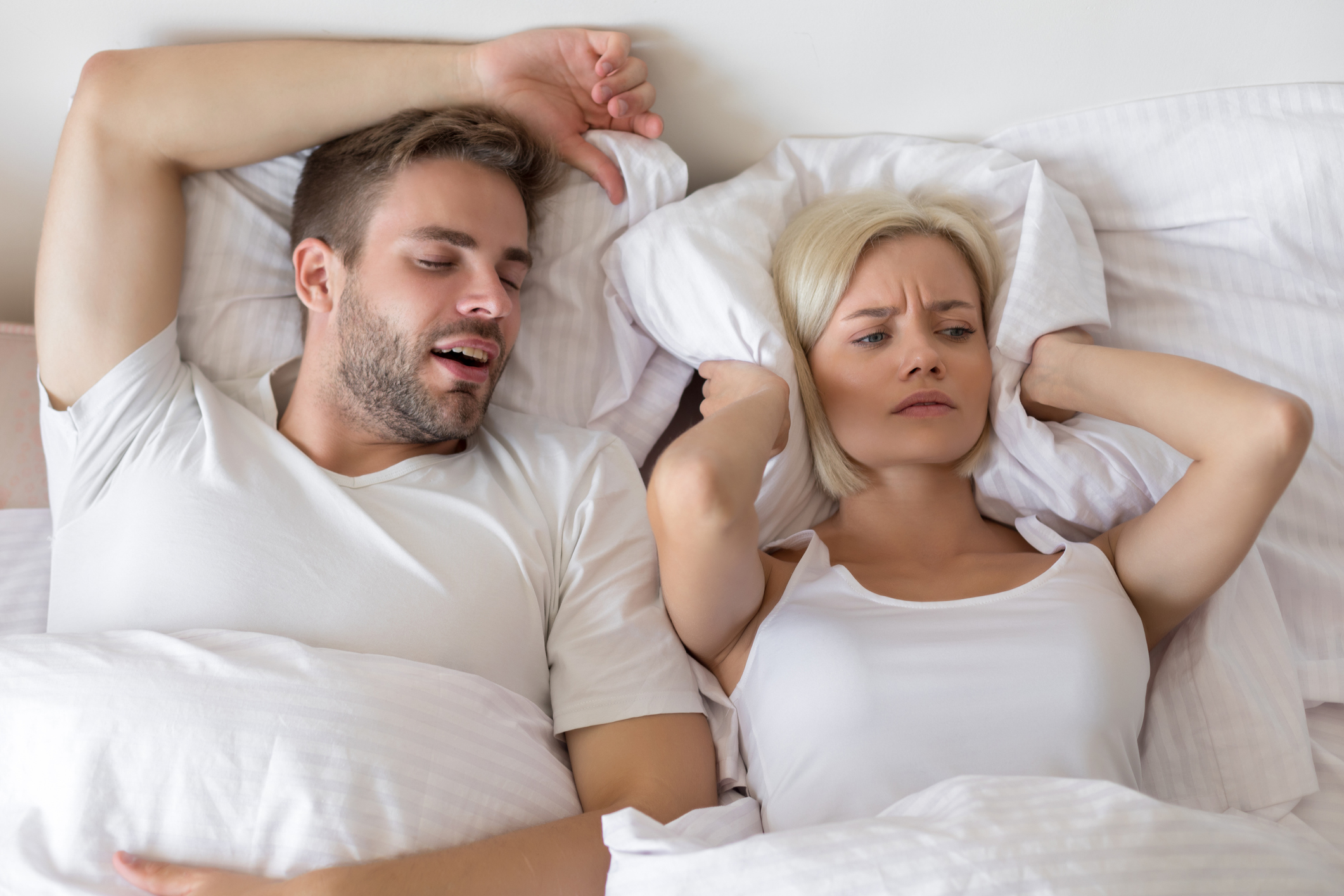
Snoring and sleep apnea are related sleep disorders that can have various symptoms. While snoring is a common symptom of sleep apnea, not everyone who snores necessarily has sleep apnea. Here are some symptoms associated with both snoring and sleep apnea:
- Snoring: Snoring is a noisy breathing sound that occurs during sleep and is caused by the vibration of the tissues in the airway. It can range from mild to loud and disruptive. Although snoring itself is not always indicative of sleep apnea, it can be a symptom of an underlying issue with the airway.
- Excessive daytime sleepiness: People with sleep apnea often experience excessive daytime sleepiness and find it difficult to stay awake and alert during the day, regardless of how much sleep they had the previous night. This excessive sleepiness can interfere with daily activities, work, and concentration.
- Pauses in breathing: Sleep apnea is characterized by repeated episodes of partial or complete cessation of breathing during sleep. These pauses, known as apneas, can last for a few seconds to a minute or longer. They are usually followed by choking, gasping, or snorting sounds as the individual resumes breathing.
- Witnessed apneas: Often, a bed partner or family member may notice the episodes of breathing pauses during the night. They may observe the person momentarily stop breathing and then start again with a loud snort or gasp.
- Fragmented sleep: People with sleep apnea may experience frequent awakenings or interruptions during the night. These interruptions can lead to fragmented sleep, causing fatigue and daytime sleepiness.
- Morning headaches: Waking up with a headache in the morning is another symptom that can be associated with sleep apnea. It is believed to be caused by the changes in oxygen and carbon dioxide levels during sleep due to interrupted breathing.
- Dry mouth or sore throat: Breathing through the mouth during sleep can lead to dry mouth or a sore throat upon waking up.
- Restless sleep and movement: Sleep apnea may cause restless and disruptive sleep, characterized by tossing and turning, frequent position changes, and even kicking or jerking movements during sleep.
- Fatigue and irritability: Due to disrupted sleep patterns and poor quality of sleep, individuals with sleep apnea often experience chronic fatigue and irritability.
It’s important to note that these symptoms may vary in severity, and not everyone with sleep apnea will experience all of them. If you suspect you or someone you know may have sleep apnea or are experiencing significant snoring, it is advisable to consult a healthcare professional for proper diagnosis and treatment.
See More on Video

The Stop Snoring And Sleep Apnea Program by Christian Goodman The Stop Snoring and Sleep Apnea Program is a well-researched program created to help stop snoring and sleep apnea so that you can have a good night sleep. The techniques that you will learn from this program works immediately.